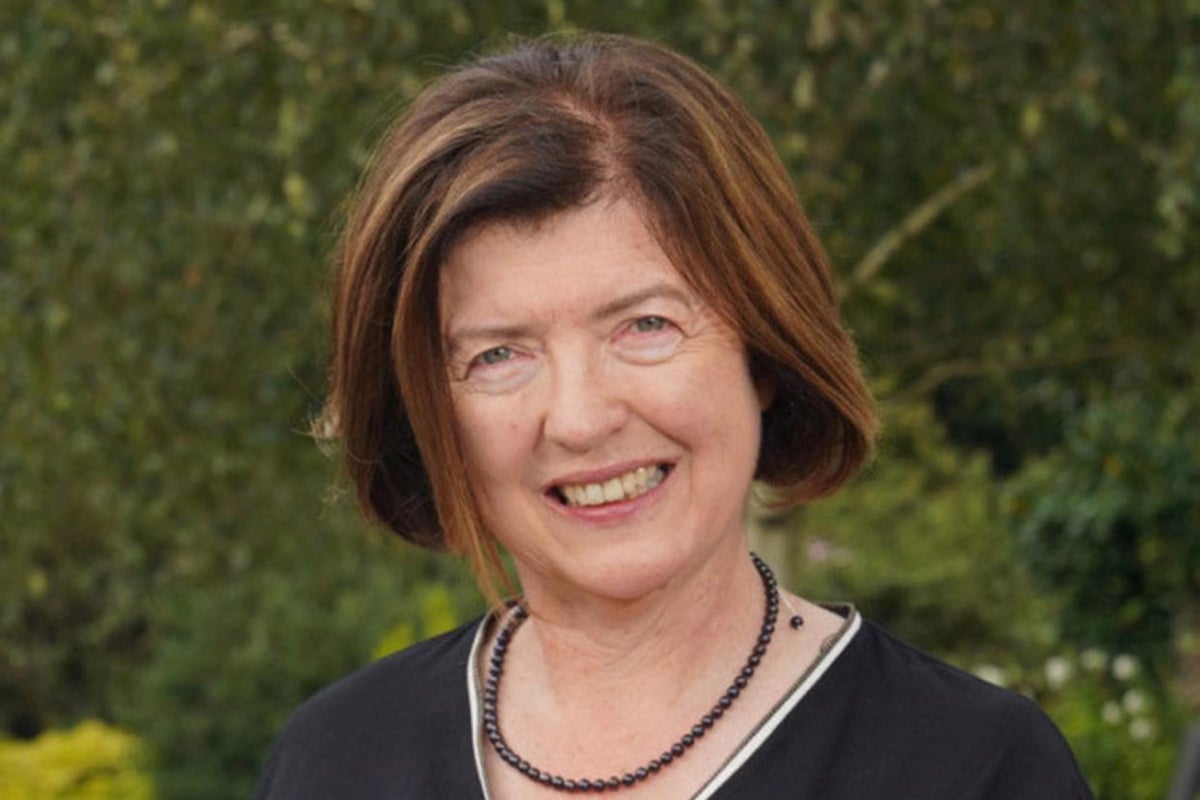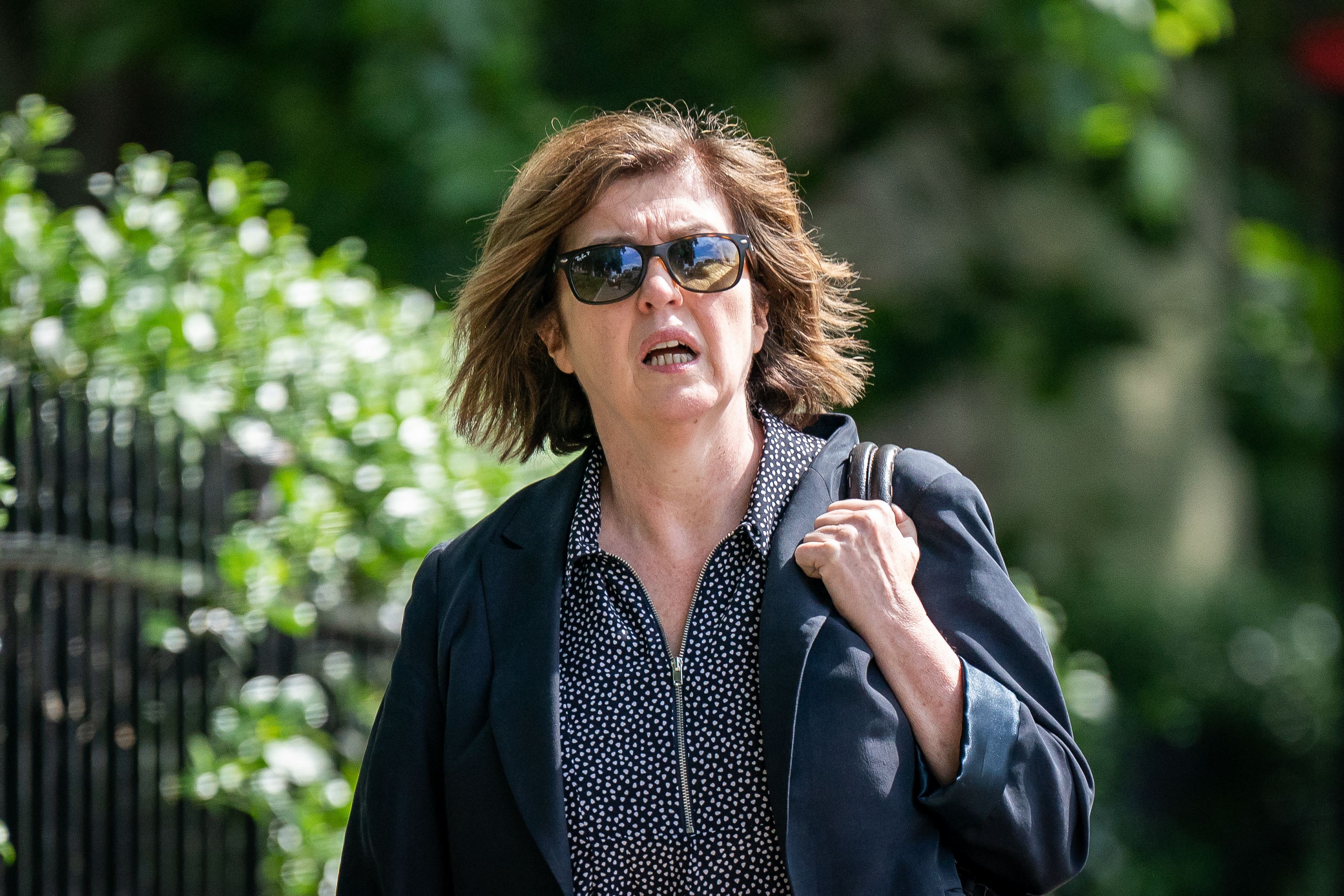
Sue Gray, the former senior civil servant who rose to fame when she was handed responsibility for untangling the “Partygate” saga, is back in the headlines again as a report is set to be published determining whether or not she herself broke rules when meeting with Labour officials to discuss a role with the party.
Ms Gray was offered the chance to become Sir Keir Starmer’s chief of staff in March and duly resigned her post but has since been accused of failing to disclose the discussions in advance, a potential breach of the rules governing civil service conduct, which is being investigated by the independent Advisory Committee on Business Appointments.
Her mooted move has been denounced by Conservative allies of former prime minister Boris Johnson, who allege the matter is evidence of political bias on Ms Gray’s part, which, they suggest, might have guided her own judgement during her investigation into the lockdown-breaking parties held at Downing Street during the pandemic.
But the former mandarin has been defended by Sir Keir, who has accused the government of using the affair to distract from more pressing concerns that could play a factor at the ballot box in Thursday’s local elections, notably the cost of living crisis.
“I’m confident she hasn’t broken any of the rules,” the Labour leader told BBC Breakfast on Tuesday.
Ms Gray, then second permanent secretary at the Cabinet Office, was given the job of leading the inquiry into the Partygate scandal in December 2021 after cabinet secretary Simon Case recused himself when it emerged that one of the parties had been held within his own department.
As she began gathering evidence into the new year, Ms Gray’s assignment seemed to grow more complicated by the day as more and more revelations continued to come to light on the front pages of Britain’s newspapers, carrying sordid tales of Westminster staffers being sent out to Co-op to fill suitcases with bottles of wine and revellers staggering out into the garden of the PM’s official residence and breaking his infant son’s swing set in a drunken stupor.
Not only was establishing the precise narrative of what went on when and who knew about it a tricky enough task for the veteran inquisitor, she also faced the prospect of incurring anger from voters if she was ultimately deemed to have been too lenient or to have carried out a “whitewash” on the PM’s behalf.
Sir David Normington, a former Whitehall permanent secretary, summed up the complexity of Ms Gray’s situation at the time when he told BBC Radio 4’s Today programme: “She will be very aware that she has the reputation and possibly the careers of senior civil servants and possibly of the prime minister in her hands, and that is a very difficult position to be in, however fair and fearless and rigorous you are.”

The initial findings of her report were published on 31 January 2022, in which Ms Gray said there had been “a serious failure of leadership” and that several of the parties concerned were “difficult to justify” in the context of the severe social restrictions imposed on the British public at the time.
Her evidence was then passed onto the Metropolitan Police, who duly handed out 126 fixed penalty notices, before the full version was published on 25 May, all of which placed huge pressure on Mr Johnson and was a crucial factor in his finally being driven from office that summer.
Before finding herself thrust centre stage by Partygate, Sue Gray had enjoyed a reputation for being impeccably discreet and efficient, nicknamed “the woman who runs the country” and “deputy God” by MPs Oliver Letwin and Paul Flynn respectively.
So discreet, in fact, that even her own age was disputed.
She is either 65 or 66, did not attend university and has served in the civil service since the late 1970s, barring a career break during the 1980s when she abandoned Westminster to run a pub called The Cove in Newry, Northern Ireland, with her husband, a country singer named Bill Conlon.
“If a pub landlady doesn't know what a party is, who will?” a rather wry family friend told The Daily Mail’s Michael Crick at the height of the excitement surrounding her report.
According to her perfunctory biography on the government website, she has worked in the departments of transport, health and work and pensions “covering a range of roles which included both policy and front line delivery”.
Subsequently joining the Cabinet Office in the late 1990s, Ms Gray eventually became director general of propriety and ethics from 2012 to 2018.
It was in that guise that she carried out a number of high-profile inquiries into the likes of defence secretary Liam Fox, ex-chief whip Andrew Mitchell over “plebgate”, and Damian Green, Theresa May’s deputy prime minister, who was dismissed after he was found to have been “misleading” in a statement made to police regarding pornography on his office computer in 2008.
“Sue has been there for so long, she knows everything that anybody has ever done wrong,” ex-Cabinet Office special adviser Polly Mackenzie told the BBC’s Profile programme in 2017.
Mr Mitchell has since been highly complimentary about his one-time interrogator, commenting: “I have always found her to be extremely straightforward, very easy to deal with; she’s got a great sense of humour and she is clear-cut and doesn’t shilly-shally around.”
It was also in relation to this period as ethics chief that the former BBC Newsnight journalist Chris Cook complained that Ms Gray was “notorious for her determination not to leave a document trail” and had assisted departments to “fight disclosures” in the shape of freedom of information requests.
“If the government feels it has to get rid of a minister, she will give them cover to do that. If a government really wants to keep someone, she’ll find a way to do that,” he said.
She served as permanent secretary to the Northern Irish executive’s department of finance on secondment from the Cabinet Office between 2018 and 2021 before returning to occupy her most recent role in May 2021, reportedly frustrated to miss out on the top job in the Northern Irish civil service and speculating to the BBC: “Perhaps I was too much of a challenger, or a disrupter.”







